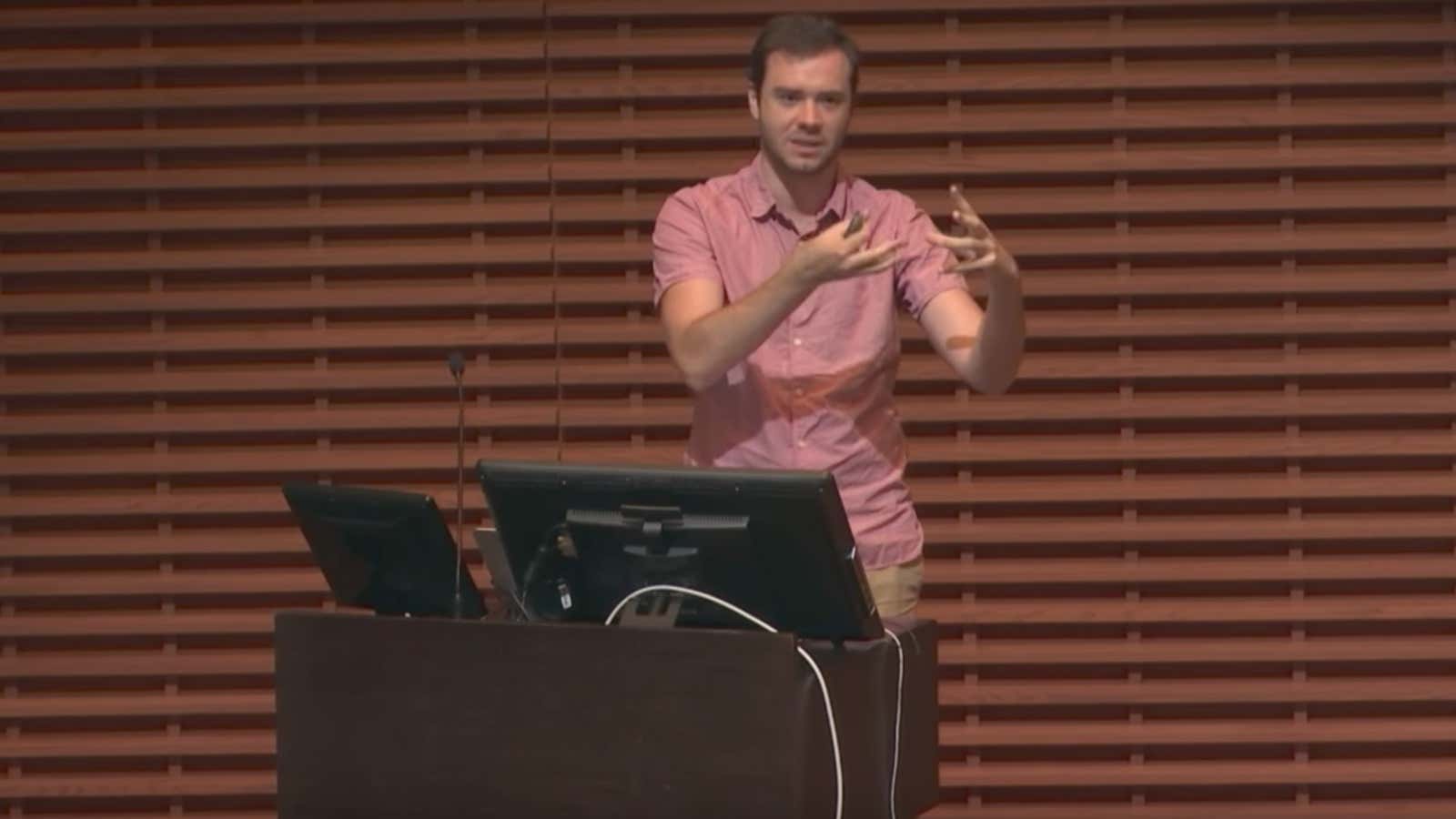Nearly two years ago, Elon Musk helped build a lab called OpenAI. Its mission: to detect the development of malicious artificial intelligence and align AI research to benefit the masses outside of Silicon Valley.
But now he’s raiding it for talent. Musk has hired Andrej Karpathy, a deep learning scion tempered in the fires of Stanford University, Google, DeepMind, and OpenAI, to serve as Tesla’s new Director of Artificial Intelligence.
While Karpathy got his Stanford PhD only last year, he’s already something of a star among Silicon Valley’s AI elite. The 30-year-old researcher has published half a dozen papers with Fei-Fei Li, head of Stanford’s computer vision lab and recently chief scientist of Google’s Cloud machine learning team, as well as at least two other papers with Google’s former AI head, Andrew Ng.
Most of Karpathy’s research focuses on image recognition and understanding. That makes him valuable to a company like Tesla, which is trying to imbue its cars with sensory abilities. But he’s still extraordinarily young for a director position, even one that, according to TechCrunch, reports directly to Musk. (We’ve contacted Karpathy to ask for more information on his new position.)
At Tesla, Karpathy expects to work on applying proven image recognition algorithms to the company’s fleet of cars, rather than inventing new algorithms and techniques for the cars to understand their surroundings, according to a Reddit post yesterday from Karpathy’s account. His Reddit username, badmephisto, is also the username for his YouTube channel dedicated to solving Rubik’s cubes.
Among Karpathy’s other sidelines, he also maintains the popular ArXiv Sanity Preserver, a website dedicated to curating the increasing slew of research papers posted on the public server ArXiv, which is often used by companies like Google, Facebook, and OpenAI to share their work with other researchers and the world. He also sits on the steering committee of Distill, a journal backed by Google that’s dedicated to explaining AI research visually, and frequently blogs about AI research on his own websites. He also has mad skill on a bicycle.
While a young gun snagging a top position in the country’s most valuable car company is notable in itself, the news of this appointment also shows that Musk has established a pipeline for Tesla to grab some of the AI industry’s top talent from OpenAI.
When the research lab was founded in December 2015, it was a bit of a coup in the world of AI. Ilya Sutskever, a rising star at Google Brain, resigned after three years to lead OpenAI as research director, working alongside others like Y Combinator co-founder Trevor Blackwell and Google/Facebook AI alum Wojciech Zaremba. OpenAI also briefly hired Ian Goodfellow, a researcher who pioneered a recently-popular technique of AI called generative adversarial networks, who has since returned to Google Brain.
One of the most important resources for companies which rely on AI today is talent—there simply aren’t enough people who know how to build AI to meet demand. For a company like Tesla, having access to an elite—albeit small—pool of top talent could be a major boon. Plus, hiring Karpathy as a direct report has given Musk constant contact with someone who has his finger on the pulse of AI research.
